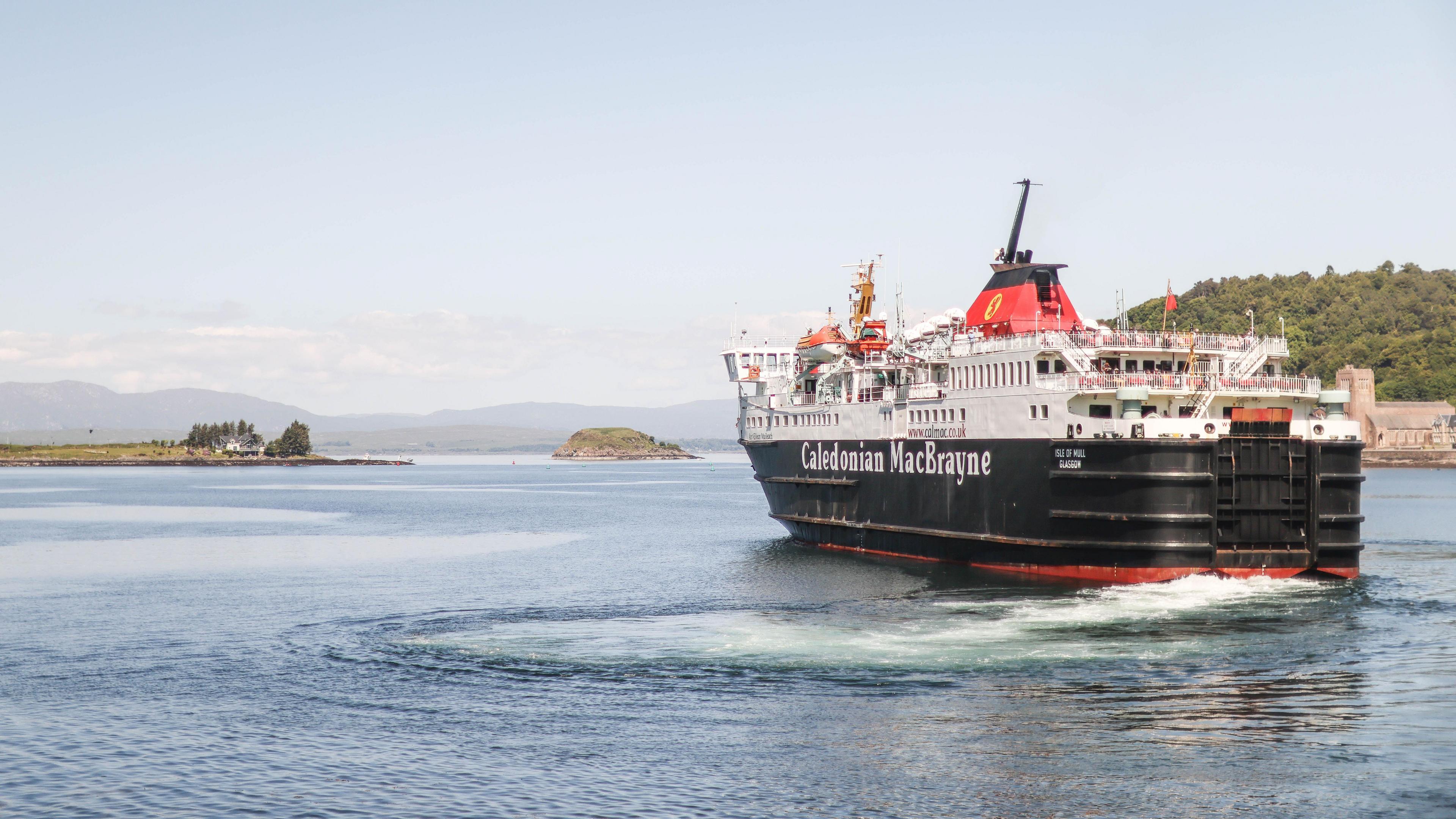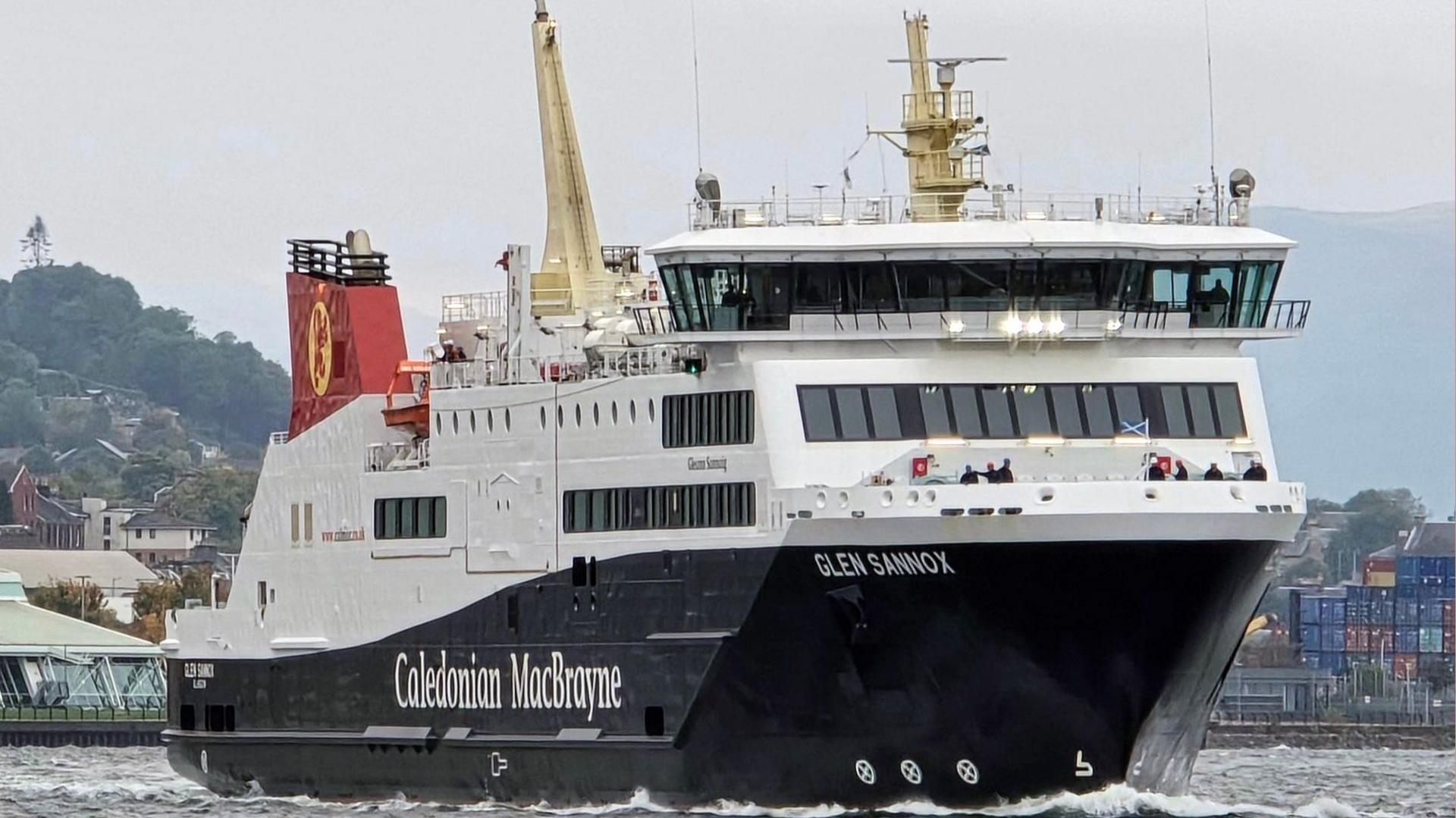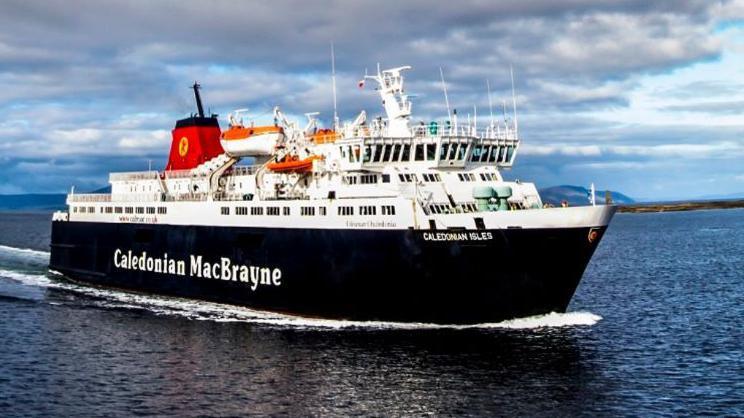Ferry fares in Scotland to increase by 10% next year

The increase will take effect from 1 January in the Northern Isles and from March on west coast routes
- Published
Ferry fares in Scotland will increase by 10% from next year, the Scottish government has confirmed.
The rise will take effect from 1 January 2025 on the Northern Isles network and from 28 March on the west coast.
CalMac's services in the west have been under particular pressure due to ageing vessels, with the main Arran ferry out of action for most of the year.
Transport Secretary Fiona Hyslop said a fare freeze in place this year had cost £10m and it would be "too challenging to continue".
She said fares were frozen for 2023-24 instead of a 9.1% inflationary increase to help people and businesses during the cost of living crisis and recovery from the Covid pandemic.
But in a letter to Holyrood's net zero, energy and transport committee, external she said: "Reluctantly, we are having to raise ferry fares in the coming year by 10%, bringing fare levels back to around what they would have been had fares not been frozen in 2023-24.
"This means, in real terms, fares have broadly increased in line with inflation over time.
"That will help to partially recover the previous freeze, address some of the significant budget pressures and allow the continued support of the ferries network in future years."
Pressure on services
Ferry services remain under pressure, with the long-delayed new CalMac ferry Glen Sannox expected to face another short delay before it is delivered.
The Ferguson Marine shipyard has said the ship's final acceptance trials were an "overall success", external but some issues that arose meant details of a revised handover date would be given shortly.
That means ship will probably not carry passengers until January because CalMac plans to carry out 6.5 weeks of crew familiarisation, and the vessel is booked into dry dock for a fortnight in December to begin its annual maintenance cycle.

Glen Sannox faces another short delay before it is handed over, although sea trials have been an "overall success"
Its sister ship Glen Rosa is still under construction in Port Glasgow, and due for delivery next September. Both ships were originally meant to be delivered in 2018, but have faced repeated design challenges and other issues.
Four other new CalMac vessels being built in Turkey have also seen delays, with delivery of the first one now put back by a further two months to next March., external
The state-owned ferry operator faces a challenging period as it tries to maintain services over winter, when vessels need to be withdrawn for annual maintenance.
The current main Arran ferry Caledonian Isles has been out of action for repairs since February, with a new fault delaying its return to mid-November, while another vessel, Hebridean Isles, is due for retirement next month.
Scottish Conservative transport spokesperson Sue Webber said the fares announcement "will feel like a slap in the face" to island communities.
"Those reliant on CalMac for lifeline ferries have endured a sub-standard service for years due to the SNP's incompetent procurement of new vessels," she said.
"The transport secretary says these rises are necessary - but they wouldn't have been had the SNP not wasted hundreds of millions of pounds on two new vessels which have still to carry a single passenger several years after they were due to come into service."
Scottish Labour transport spokesperson Claire Baker said: "This eye-watering fare hike is salt in the wound for all the islanders dealing with the SNP’s ferry chaos.
“This comes as a blow to Scotland’s tourism industry and will pile pressure on islanders already struggling to make ends meet."
Related topics
- Published8 October 2024
